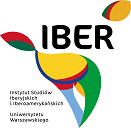Paulina Bojarska, PhD.

dr Paulina Bojarska
- Associate Professor at the Institute of Iberian and Ibero-American Studies since 2019
- Member of the Faculty of Modern Language Council
- Erasmus+ Departmental Coordinator
Specialization: Literary Studies, Art Studies
Academic and professional career:
Paulina Bojarska graduated from Spanish Philology at the University of Warsaw (2001). Between 2007 and 2019 she worked at the Institute of Americas and Europe as a Spanish teacher, first in the Center for Latin American Studies CESLA (2007-2017), then in the American Studies Center ASC (2017-19). She offered courses of practical Spanish as well as “Musical traditions of Latin America and the Caribbean” and “American Spanish”. Mobility Coordinator in CESLA and ASC (2012-19). From 2007 to 2012 she taught Spanish preparatory courses for state exams to officials of the Ministry of Foreign Affairs (levels A1-C1).
Author of literary and scientific translations. In 2018 she completed her Ph.D. studies at the Faculty of Modern Languages of the University of Warsaw, at the Institute of Iberian and Ibero-American Studies. In her doctoral dissertation, written under the supervision of prof. Grażyna Grudzińska, she analyzed the lyrics of vidalitas and guajiras, two styles of flamenco singing, rooted in the rural music of Latin America.
Research Topics:
- History of the flamenco and other musical genres from the Spanish-speaking cultures
- Transatlantic cultural relations between Spain and Latin America
- Roundtrip songs of flamenco, and their connection with the rural music of the Hispanic Creoles and Latin American literary traditions: Gaucho Literature, criollismo.
- Song lyrics analysis in the context of popular culture
- Oral poetry
Courses:
- Spanish for Linguistic Studies I and II,
- Spanish Language in Latin America and the Caribbean: History and Diversity
- Lyrics in the selected genres of traditional Latin American music. Analysis and Interpretation
- Practical Spanish I and II
- BA seminar: History and lyrics in the traditional music of Spain and Latin America
Usosweb: https://usosweb.uw.edu.pl/kontroler.php?_action=katalog2%2Fosoby%2Fpokaz...
Email adress: p.bojarska@uw.edu.pl
Publications:
Books
Vidalita flamenca, el cante nacido de una canción del folclore rioplatense, Seria: Biblioteka Iberyjska, Instytut Studiów Iberyjskich i Iberoamerykańskich Uniwersytetu Warszawskiego, MHPRL, Warszawa, 2021, str. 498.
https://mhprl.pl/produkt/vidalita-flamenca-el-cante-nacido-de-una-cancio...
Articles and chapters
"Muzyka Urugwaju. Ślady muzyki tubylców, rytmy afrourugwajskie, wpływy hiszpańskie", w: J. Gocłowska-Bolek (ed.), Urugwaj. Polityka, gospodarka, społeczeństwo, kultura, Wydawnictwo Naukowe SCHOLAR, Warszawa, 2021, str. 251-277.
„Cuando lo religioso se vuelve político. El candombe uruguayo en las encrucijadas de la historia”, w: K.Krzywicka, R. Siuda-Ambroziak (red.), Política y religión en América Latina, Wydawnictwo Uniwersytetu Marii Curie-Skłodowskiej, Lublin, 2017, str. 273-292.
„Murga i candombe - karnawałowe tradycje muzyczne Urugwaju”, w: Ameryka Łacińska Nr 3/93, Centrum Studiów Latynoamerykańskich UW, Warszawa, 2016, str. 28-49.
“Cantes de ida y vuelta. Un ejemplo de aportaciones culturales transatlánticas y de la fascinación por lo latinoamericano en la Andalucía de las primeras décadas del s. XX”, w: Iberoamericana Quinqueecclesiensis, Centro Iberoamericano, Universidad de Budapest – Universidad de Pecs, 2016, str. 241-256.
„Pieśni flamenco jako niematerialne dziedzictwo Andaluzji”, w: Dziedzictwo kulturowe – wartości, ochrona, popularyzacja, Samanta Kowalska (red.), Uniwersytet Adama Mickiewicza w Poznaniu, Wydział Pedagogiczno-Artystyczny, Poznań – Kalisz 2015, str. 328-343.
„Vidalita – un cante flamenco nacido de la canción criolla”, w: Pensamiento cultural del CESLA, Wyd. CESLA UW, Warszawa 2014, str. 49-98.
„Jeden tekst, różne emocje. Ekspresja rozpaczy i radości w czterech stylach flamenco”, [w:] Świat zmysłów. O znaczeniu zmysłów w kulturze, red. Sylwia Góra, Justyna Kulczycka, Akademia Ignatianum, Kraków, 2014, str. 181-190.

